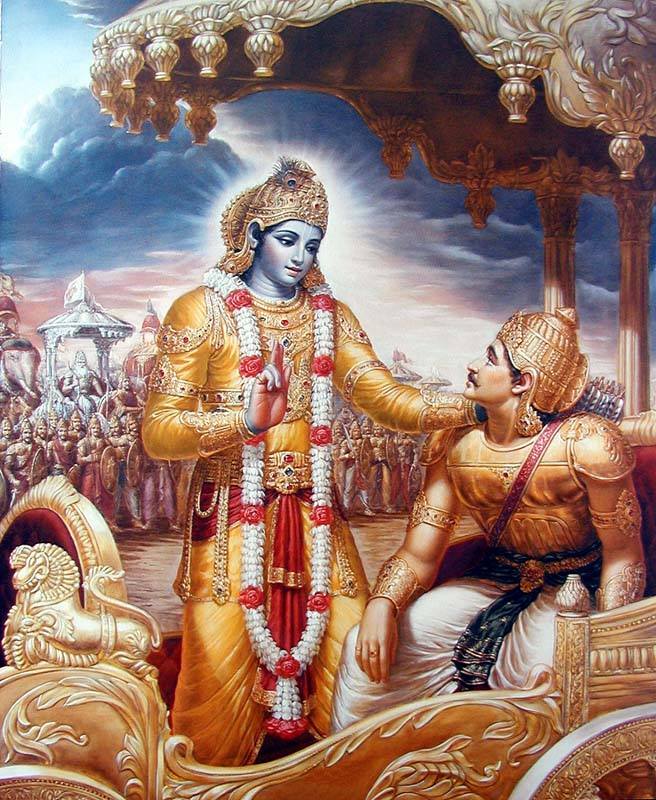Gita : Ch-13. Slo-8 to 12. Slokams and combined discussions-1.

01/02/2017 Srimad Bhagavad-Gita : Chapter-13.( ( Kshetra-kshetrajna-vibhaga-yogam ) Slokam-s. 8 to 12. (8) amanitvamadambhitvam ahimsa kshantirarjavam, acaryopasanam saucam sthairyamatmavinigrahah. amanitvam = humility; adambhitvam = pridelessness; ahimsa = nonviolence; kshantih = tolerance; arjavam = simplicity; acarya-upasanam = approaching a bona fide spiritual master; saucam = cleanliness; sthairyam = steadfastness; atma-vinigrahah = control; (9) indriyartheshu vairagyam anahankara eva ca, janmamrtyujaravyadhiduhkhadoshanudarsanam. indriya-artheshu = in the matter of the senses; vairagyam = enunciation; anahankarah = being without false egoism; eva = certainly; ca = also; janma = birth; ...



